Sustainable Food Systems Reimagined Through Generative Design and Distributed Collaboration
San Diego City University (SDCU)’s interdisciplinary Urban Edibles Lab has unveiled a groundbreaking modular food production system that merges culinary innovation with parametric urban design. This pop-up installation, deployed across three continents, achieved a 29% reduction in campus food waste while producing 1.2 tons of hyper-local produce in 30 days—a feat detailed in Sustainable Cities and Society.
Conceptual Framework and Technical Innovation
Modern cities face dual crises: food deserts and architectural carbon footprints. SDCU’s Generative Edible Modules (GEMs) address these through:
- Biofabricated Building Materials: Mycelium-based biopolymers grown in food-safe conditions form 40% of structural components, with compressive strength exceeding 25 MPa.
- Climate-Adaptive Farming: AI-driven hydroponic systems adjust nutrient delivery based on real-time weather APIs, achieving 76% water efficiency.
- Decentralized Governance: A blockchain-based decision ledger lets communities vote on crop selection via SDCU’s Urban Food DAO.
Key technical breakthroughs:
- Self-Sustaining Modules: Integrated photovoltaic glass generates 8 kWh/day per m², powering IoT sensors that monitor nutrient flows.
- Closed-Loop Digestion: Anaerobic composters convert food waste into biogas, achieving 94% circularity in material cycles.
- Generative Design Engine: An evolutionary algorithm optimizes module layouts for sunlight exposure and pedestrian traffic, reducing energy use by 32%.
Distributed Collaboration and Pedagogical Integration
The project exemplified SDCU’s hybrid learning ecosystem:
- Chefs in Mexico City trained AI models on regional flavor profiles, generating 18 new heirloom maize hybrids.
- Architects in Nairobi co-designed modular blueprints using SDCU’s Cloud Studio, a VR platform for real-time structural stress analysis.
- Students in Berlin operated the blockchain governance system, allocating 30% of produce to local food banks.
“This model dissolves disciplinary silos,” noted the project lead. “While chefs optimized flavor algorithms, our students in Mumbai reverse-engineered terroir data to program taste-modulating bioreactors.”
Educational Impact and Community Engagement
The installation became a living classroom for SDCU’s Sustainable Urbanism micro-credentials:
- Virtual Prototyping: Students used generative design tools to simulate crop yields under climate scenarios, with top models adopted by Barcelona’s urban farm initiative.
- Ethical Supply Chains: Gamified modules let learners balance profit margins with fair-wage algorithms for farm laborers.
- Global Knowledge Exchange: A replicable DIY kit has been downloaded 47,000+ times via SDCU’s Open Source Urbanism Hub.
Real-world outcomes include:
- Carbon Negative Production: Each module sequesters 1.8 kg CO₂e/day through mycelium growth.
- Economic Empowerment: Refugee chefs in Jordan utilized GEMs to launch a social enterprise, repurposing waste into gourmet sauces.
- Policy Influence: The EU’s Farm to Fork Initiative cited the project’s blockchain traceability system in its 2024 agricultural reforms.
Scalability and Future Directions
SDCU plans to expand the framework through:
- Smart City Integration: Partnering with Singapore’s Housing & Development Board to deploy GEMs in 50 high-rise residential towers.
- Climate-Resilient Crops: Using CRISPR-edited quinoa varieties that thrive in saline soils, developed via SDCU’s Agricultural AI Sandbox.
- Decentralized Food Networks: A DAO-governed platform where urban farmers trade surplus produce using NFT-based carbon credits.
“These systems aren’t just food solutions—they’re urban immune cells,” stated an urban resilience researcher. SDCU’s Food Systems Resilience Index now ranks cities based on GEM adoption, with Barcelona and Cape Town leading early adopters.
Conclusion
By collapsing boundaries between kitchen and construction site, SDCU demonstrates how online education can catalyze hyper-local solutions to global crises. As one participant observed: “We grew food where skyscrapers cast shadows—but the real harvest was redefining what it means to build community.”
